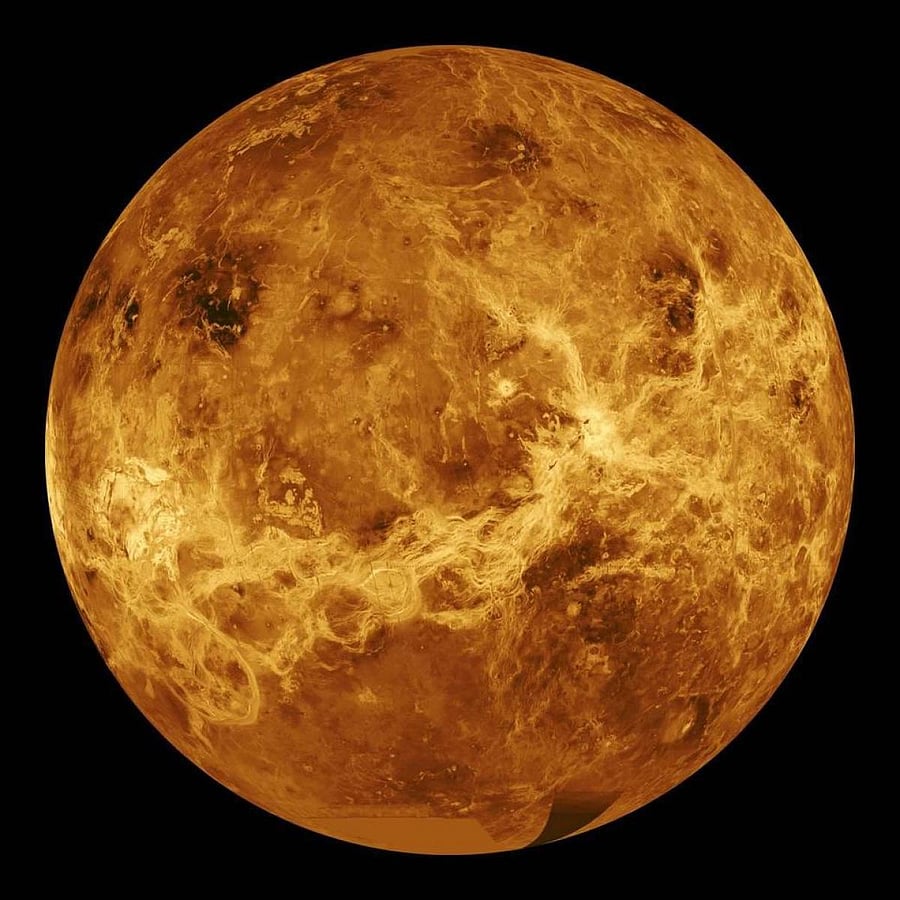Hostile environment: Venus is a terrestrial planet with rocky terrain, volcanoes, and a dense atmosphere. Carbon dioxide and sulphuric acid-laden clouds dominate the dense atmosphere which also gives rise to excruciating surface pressures of 92 bars (as much as that at 1km below sea level on earth), making the planet inhospitable.
Hellishly hot: Though Venus is the second planet in the solar system, it is hotter than Mercury, with surface temperatures of 465 degrees Celsius. The planet has a high ‘albedo factor’ or ability to reflect solar radiation. Venus does not have plants to recycle carbon dioxide, thereby increasing the greenhouse effect.
Volcanic features: Astronomers have observed huge, meandering lava channels (some even 6000km long) on Venus, indicating it has undergone tremendous volcanic activity in the past. Recently a spacecraft detected bursts of sulphur dioxide spewing from the Venusian clouds, indicating that the planet could still be volcanically active. They deduce that there could be 37 active volcanoes on Venus.
Year-long days: Venus is close to the sun and hence under its tight gravitational grip. Owing to this, it goes around the sun quickly, in 225 earth days. However, Venus spins about its axis slowly, taking 243 earth days to rotate once.
In reverse: Most planets spin about their axis in an anticlockwise direction, but not Venus. Astronomers believe that in the early days when Venus was forming, a massive celestial body would have collided with it, toppling it and setting it on a reverse spin.
Mysterious life signs: Recently, scientists detected traces of phosphine, a biosignature gas, in the upper atmospheric clouds on Venus. They conjecture that some unknown microbial activity could be releasing the gas.
